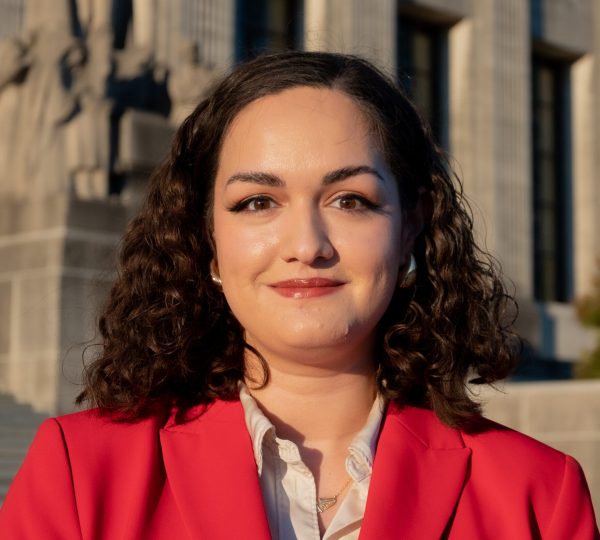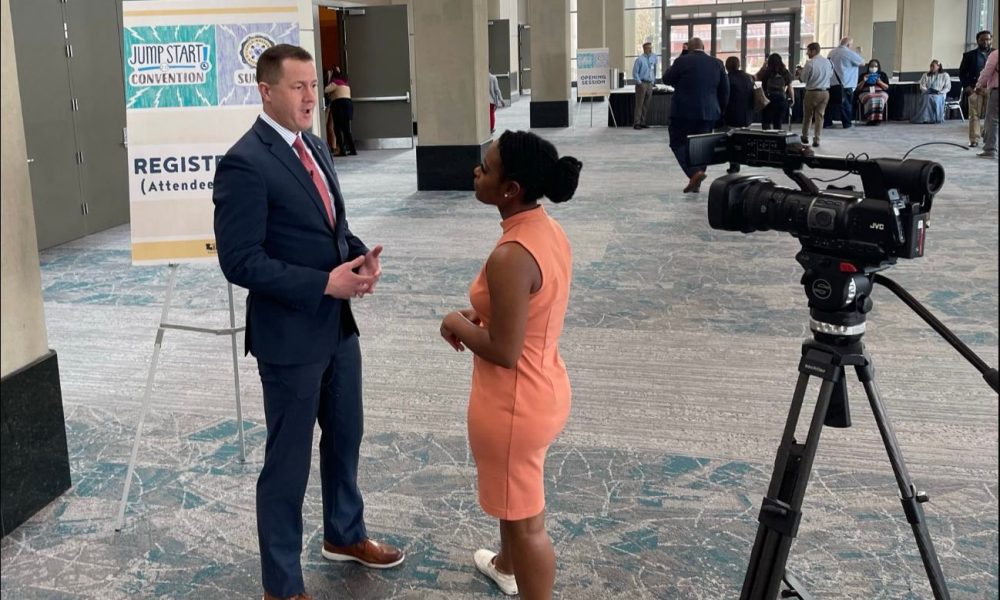By Piper Hutchinson | BATON ROUGUE, La. – As severe weather shut down nearly every government entity in Louisiana Wednesday, a legislative committee met and quietly advanced two pieces of anti-LGBTQ+ legislation.
The Louisiana House Committee on Education advanced House Bill 121 by Rep. Raymond Crews, R-Bossier City, which prohibits the use of transgender and nonbinary youth’s chosen names and pronouns in public K-12 schools without parental permission, along a party line 9-3 vote.
House Bill 122 by Rep. Dodie Horton, R-Haugton, which limits discussion of gender and sexuality in public K-12 schools, also advanced on a 9-3 vote, with Rep. Barbara Freiberg, R-Baton Rouge, joining Democrats in opposing the bill.
The Legislature approved both bills last year. Then-Gov. John Bel Edwards, a Democrat, vetoed them, and Republicans were unable to overturn his action. A representative for Gov. Jeff Landry, a Republican, filed a card in support of both Crews’ and Horton’s bills.
Committee hearings on the same bills in previous years stretched on for hours with extensive public testimony, primarily from LGBTQ+ youth, but Wednesday’s hearing moved at an unusually fast clip, with many advocates stuck at home.
The committee was scheduled to meet at noon, an hour before a tornado watch expired for Baton Rouge. Tornadoes had touched down in Slidell and Lake Charles in the morning, and flooding and storm debris blocked roads across the state.
Just four people testified against the bills Wednesday. By comparison, more than 40 people testified against the same bills in 2023, and over 300 more filed cards in opposition but did not speak.
The Louisiana Senate decided late Tuesday afternoon to cancel its committee meetings the next day to avoid the hazardous weather. Senators aren’t scheduled to return to the Capitol until Monday.
The House of Representatives canceled all but two of its six scheduled committee meetings, In addition to Education, the House and Governmental Affairs Committee also met at noon to discuss several election-related bills
Advocates with Forum For Equality, an LGBTQ+ rights organization, called on House Speaker Phillip DeVillier, R-Eunice, to cancel the two committee hearings.
Crews’ bill would require teachers and other school personnel to use a student’s given name and pronouns that align with their birth sex unless a student has permission from their parents to use their chosen name.
Teachers would be allowed to disregard a parent’s choice to respect their transgender or nonbinary child’s preferred name and pronouns if they have religious opposition to doing so.
Freiberg noted this double standard during the hearing, pointing out the bill was touted as a parental rights bill but allowed a parent’s choice to be invalidated.
In an interview after the hearing, Crews said that while his bill supports parental rights, parents should not be able to eclipse somebody else’s religious rights.
His bill does not have an exception for those who have a religious opposition to deadnaming or misgendering students.
Deadnaming is when someone uses a transgender or nonbinary individual’s birth name, or “dead name,” against their wishes. Misgendering occurs when someone refers to an individual as a gender that they do not identify.
At the core of Crews’ proposal is his belief that parents have the right to know whether their children are transgender. Advocates for the LGBTQ+ community say the bill would force transgender youth to out themselves to their parents or else be deadnamed and misgendered at school. They have raised concerns about what happens when parents find out — and don’t approve.
A survey from the Trevor Project found 38% of transgender women, 39% of transgender men and 35% of nonbinary youth have experienced homelessness as a result of parental rejection.
Horton’s bill is similar to a Florida law referred to by critics as a “Don’t Say Gay” bill. Her proposal is much broader and would apply to K-12 grades, whereas Florida’s law applies only to early grade students.
Florida recently settled a lawsuit over the law filed by civil rights activists. As part of the agreement, students and teachers are permitted to discuss gender and sexuality as long as it is not part of classroom instruction.
Horton’s bill would not just apply to classroom instruction. It also prohibits “covering the topics of sexual orientation or gender identity” during any extracurricular and athletics events, meaning it could potentially hinder student chapters of the Gay-Straight Alliance and other LGBTQ+ student organizations.
Horton said she didn’t believe teachers should discuss their “lifestyle choices” with students and made reference to a Caddo Parish teacher who she said bragged about confusing children with their sexual orientation.
As written, the bill would also prevent discussion of heterosexuality and the cisgender identity.
The bills will next be discussed by the full House of Representatives.
******************************************************************************************

Piper Hutchinson is a reporter for the Louisiana Illuminator. She has covered the Legislature and state government extensively for the LSU Manship News Service and The Reveille, where she was named editor in chief for summer 2022.
*****************************************************************************
The preceding piece was previously published by the Louisiana Illuminator and is republished by permission.
Louisiana Illuminator is part of States Newsroom, a network of news bureaus supported by grants and a coalition of donors as a 501c(3) public charity. Louisiana Illuminator maintains editorial independence.

